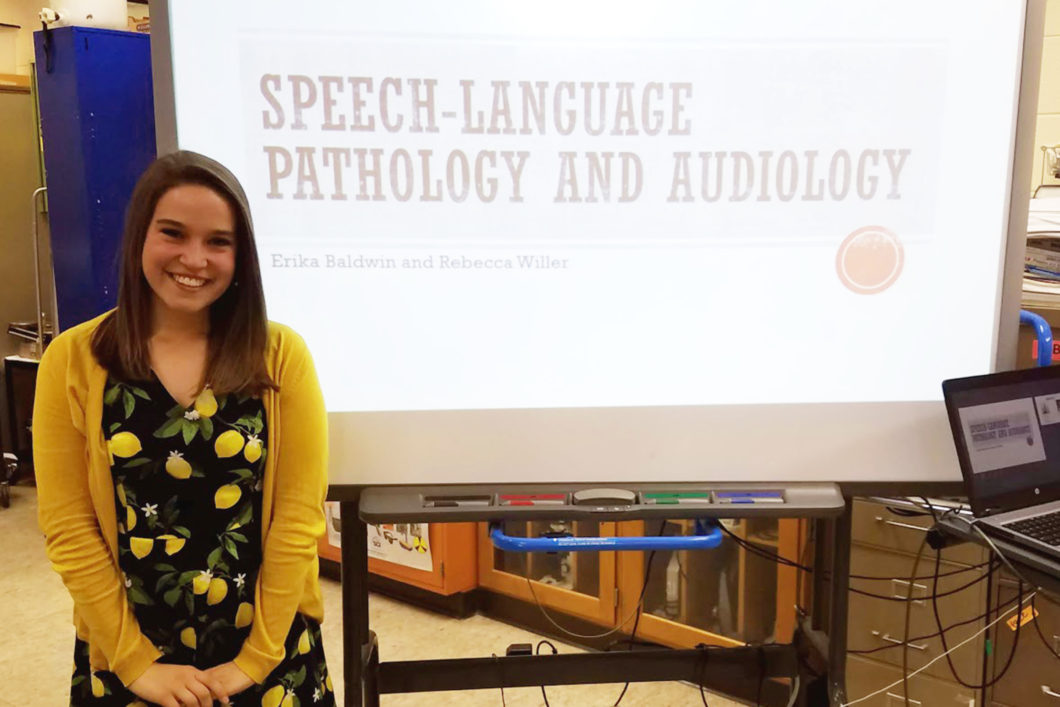Throughout my educational policy classes, I learned how important it is for students to have mentors and teachers who share the same ethnicities and genders as them. Having role models who look like them, increases the likelihood that students will see themselves in similar roles. But what about kids who are working with speech-language pathologists and audiologists? Does the same hold true? Yes.
The Need to Increase Diversity in the Professions
I took a look at the makeup of my CSD program and thought about the SLPs and audiologists I know personally … I realized our professions might not fully reflect the diverse populations we serve.
After doing some research, I learned…
- 21% of students enrolled in an undergraduate CSD programs are of a racial/ethnic minority (ASHA, CSD Education Survey National Aggregate Data Report—2013-2014 Academic Year)
- 17% of first-year graduate-level students are of a racial/ethnic minority (ASHA, CSD Education Survey National Aggregate Data Report—2013-2014 Academic Year)
- 8.2% of ASHA members, nonmember certificate holders, international affiliates, and associates are members of a racial minority (ASHA, 2018 Member Counts)
As the U.S. continues to become more linguistically, racially, and ethnically diverse, it’s important that professionals in the speech-language pathology and audiology professions also become more diverse—allowing all populations to be represented and providing role models for future SLPs and audiologists. Achieving this goal starts with us—students.
Sparking Interest in English Language Learning Students
As one of National NSSLHA’s Student State Officers for Wisconsin this past year, I worked closely with my counterpart, Erika Baldwin, to figure out how we could start advocating for linguistic, racial, and ethnic diversity in CSD programs. We decided the best way to do that was to start with students who probably don’t even know about the professions yet—high schoolers.
This past May, Erika and I presented at local Milwaukee Public High School classes under the Sheltered Instruction Observation Protocol (SIOP) model. Students were all English Language Learners and spoke multiple languages. We talked about the fields of speech-language pathology and audiology, as well as safe hearing and speech practices for Better Hearing and Speech Month. We also stressed the need for bilingual SLPs and audiologists.
The presentations were a hit! Most students had never heard of the professions; but afterwards, many were so excited about the idea of becoming an SLP or audiologist, they stayed after to chat more. Our presentations sparked something in them—opening their eyes to a profession they’d never considered. We found out later that many of them were still talking about our presentation during lunch!
Steps to Reach High Schoolers in Your Community
We had such an overwhelmingly positive experience, we wanted to share the steps we took to organize this effort in the hopes you’ll be inspired to give similar presentations! Here’s some info to get you started…
- Contact your local high schools’ guidance counselors (contact info is often listed online). Explain the importance of your presentation and how it would benefit their students. Don’t be discouraged if you don’t hear back right away—counselors are often very busy! Send follow-up emails if needed.
- Create a fun and engaging presentation about the professions. Our presentation started with an icebreaker and included several breaks for open discussion and questions.
- Give students your email and let them know you’re a resource if they have future questions. This gives them a friendly face to talk to.
- Follow up with the schools you present at, thanking them for their time. Encourage the guidance counselors and/or teachers to spread the word about your mission to their colleagues whose students may also find it valuable.
This Isn’t the End of Our Advocacy Efforts
It was such an amazing experience talking to these Milwaukee Public High School students about the prospect of becoming SLPs and audiologists. I feel like I gained more than them during those presentations.
Although it’s just one small step towards change, Erika and I left the presentations so inspired by the students’ excitement and the possibility of helping generate more diversity in the fields, especially within our own community. We look forward to raising even more awareness of the professions at other local schools and advocating for increased diversity within our fields.

